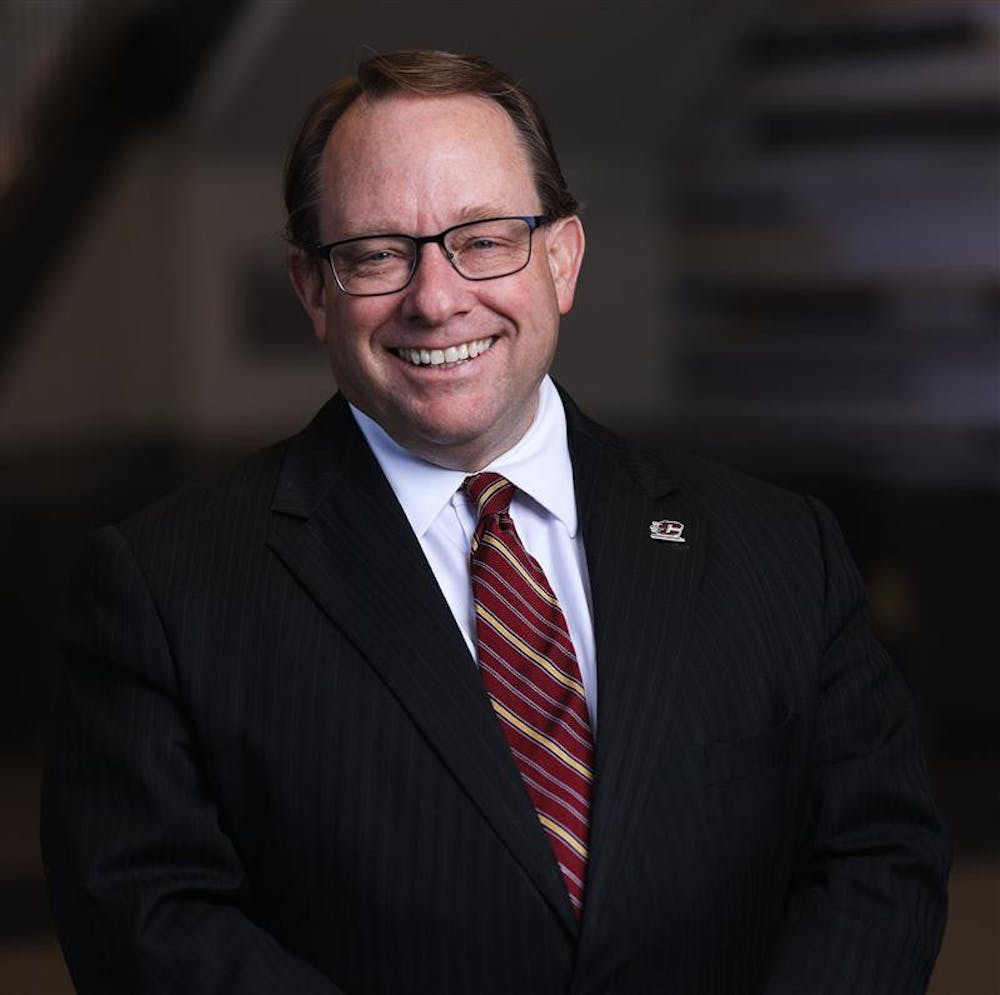GUEST COLUMN: Confronting sexual aggression in college
We must protect each other during the ‘Red Zone’
Content Warning: Includes mention of sexual assault, trauma and sexual aggression.
By Dr. Bob Davies
Central Michigan University President
We talk a lot at Central Michigan University about our Fired-Up attitude and how we lift each other up. Enthusiasm and trust play a big part in our campus culture. Throughout new student orientation, IMPACT and Leadership Safari, there are many discussions about watching out for and taking care of one another.
These first few weeks of class are a critical time to put those ideals into practice.
Nationally, more than 50% of college sexual assaults occur during the first few weeks of the fall semester. As a result, this timeframe has earned the appropriately alarming name “The Red Zone.” And, although every student, regardless of age or gender, is at risk, first-year female students are the most vulnerable.
It is not easy to talk about sexual aggression, but we are a community that confronts difficult issues head-on, and we discuss and address the challenges that impact us.
It is why we build discussion of sexual aggression into many of our events for new students at the start of the semester. Our “No Zebras, No Excuses” training reinforces the roles students can play in intervening in and preventing sexual assault. It helps you understand what sexual aggression is, exposes you to the many forms it can take and shows you how to get involved using something called bystander intervention.
If you see someone in a vulnerable position — or becoming the target of sexual aggression or violence — take action. That can mean everything from taking a friend home who has had too much to drink, to getting law enforcement involved when someone is being aggressive.
Bystander intervention is an important way to reduce the rate of sexual aggression during the weeks of “Red Zone.” It is a way we can each demonstrate that, at CMU, we truly do look out for each other. Look out for your friends, and for anyone who might need help.
If you or someone you know is a survivor of sexual aggression, please know that help is available. We will listen, we believe you and we will support you.
There are confidential resources, such as the Counseling Center, with its full-time counselor dedicated to supporting survivors, and Student Health Services, that can provide support without the requirement of reporting the incident. Other resources, such as CMU Police and the Office of Civil Rights and Institutional Equity, do have an obligation to report.
Students also play a vital role in supporting survivors. Sexual Aggression Peer Advocates (SAPA) was one of the first programs in the nation to use student volunteers to support survivors of sexual violence.
25 years later, SAPA continues to provide confidential, survivor-centered and trauma-informed service to our university community. Trained SAPA advocates listen and can talk with you about your situation, your safety and your options. They also can connect survivors with the appropriate campus and local resources. SAPA’s 24/7 crisis line is 989-774-2255, or you can text SAPA at 989-621-3359.
We all play a role in keeping our campus and community safe and welcoming. It is up to us to do all we can to prevent sexual aggression during the “Red Zone,” by choosing to take action when we see harmful behavior and knowing where to find help for our friends and neighbors.
When we stand up for each other to prevent the trauma of sexual assault, we become a safer and better community to learn and live in.
Dr. Bob Davies is the Central Michigan University president and has been for five years. He collaborated with CM Life in publishing an op-ed to spread awareness on the “Red Zone.”




